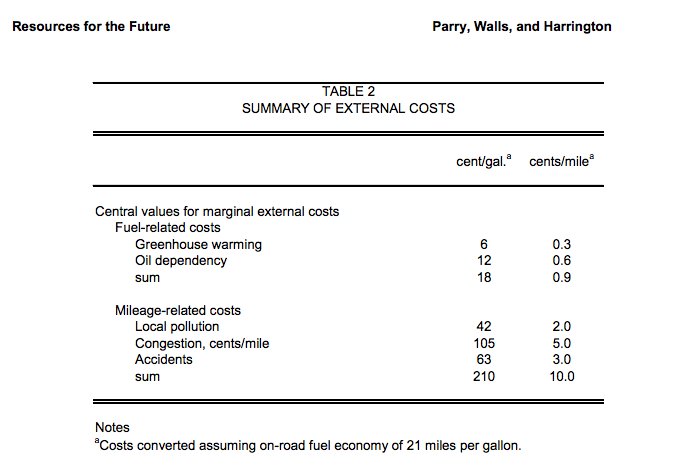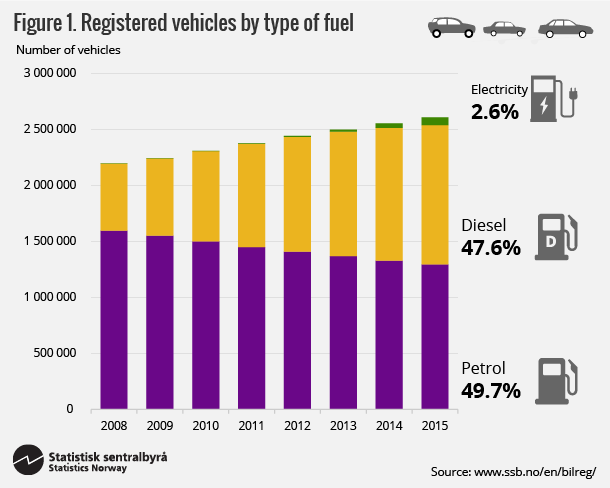Incentives to purchase electric vehicles were a focus of Ontario's Climate Action Plan, but they didn't come from the automotive expert on the Climate Action Group appointed last March.
What would it take to make you buy an EV?
Industry consultant Dennis DeRosiers is blunt: “An incentive means a product has failed. The fundamental issue is that internal combustion engine cars are better.” He shakes his head that programs that have failed in virtually every jurisdiction where they’ve been introduced have not delivered a fraction of the anticipated results, and yet Ontario believes it will change the course. “Scrapper programs fail unless you’re prepared to force cars off the road. Governments won’t do that.”Meanwhile in Norway... they seem to think incentives can get people into electric cars.
DeRosiers was part of the provincial Climate Action Committee, and says in 100 hours of meetings less than half an hour was devoted to the auto sector. And despite the transportation sector making up 35 percent of all greenhouse gases in Ontario, he claims that none of his suggestions or advice was taken during these meetings. I asked about the popular projections that by 2050 our roads will be dominated by electric vehicles; he points to Germany, where the goal was 1 million EVs by 2020, and it currently sits at 70,000. “The greenest country in the world, and they don’t want them,” he says.
“Despite rebates and incentives, 96 per cent of drivers choose gas cars. And this is not the manufacturer’s fault. They are consistently making cars that are 20 percent more fuel efficient year over year.
“This is about drivers not wanting the new technology. It is still overwhelmingly for people who can afford two cars, so we’re talking not about buying one car, but two, and all the costs associated with that. And don’t forget the brutal depreciation on the electrics.”
Norway not planning ban on gas & diesel car sales
Anders Bjartnes, editor of Norsk Klimastiftelse/Energi og Klima...:I'll wait for the explanation of the success of EV's in Norway, but the jurisdiction to watch may be Germany, which found subsidizing the purchase of EV's while focusing on the technology. From a German government site:
“the target will be backed up by a series of efforts (taxes, subsidies, charging stations, hydrogen infrastructure, differentiated rush-hour taxes, etc.) to maintain high speed in the transition.” He also quoted NorwegianMP Ola Elvestuen of the Liberal Party ...
“I am a liberal politician and don’t support the use of force to get rid of petrol and diesel cars. The goal is to make zero/low-omission cars so attractive that people choose them.”
Bjartnes also says that diesel & gasoline cars have already fallen below 50% of new sales in the Hordaland/Bergen area (for reasons we will have to come back to in a future article).
So there you have it: Norway is not going to prohibit its citizens from buying new diesel/gasoline cars, but it will implement progressive policies to encourage a transition towards electric vehicles...
National Electromobility Development PlanThis plan, with few cars sold, was only recently supplemented with the more traditional, Germany sets out major cash incentive for electric car buyers:
The German Federal Government has set an ambitious goal of one million electric cars on German roads by 2020 as part of its "National Electromobility Development Plan" drawn up by the Federal Ministry of Economic Affairs and Energy (BMWi); the Federal Ministry of Transport, Building and Urban Affairs (BMVBS); the Federal Ministry for the Environment, Nature Conservation and Nuclear Safety (BMU); and the Federal Ministry for Education and Research (BMBF) in accordance with the Integrated Energy and Climate Programme (2007) of the German Government. The National Electromobility Development Plan includes more than EUR 500 million in incentives for the development of vehicles, energy storage devices and infrastructure. This figure has subsequently been increased by a further EUR 1 billion to the end of the current legislative period as part of the government's Electromobility program.
Chancellor Angela Merkel's cabinet agreed Wednesday to set aside some 600 million euros ($675 million) of taxpayers' money to encourage people to buy electric cars - via an "environmental bonus." The costs of the scheme will be shared with the auto industry, which is also putting up 600 million euros.Purchasing incentive, or research and development incentives or...
New car-buyers stand to get a 4,000-euro ($4,500) subsidy if they buy a purely electric car, and 3,000 euros if they opt for a hybrid car, which combines a battery and a small combustion engine. Not only that, electric cars will be exempt from motor vehicle taxes for 10 years.
Economy Minister Sigmar Gabriel sold the scheme as vital to Germany's industrial future, arguing that electric cars will be key to maintaining Germany's leading position in the European auto industry.
"The growing demand will trigger important and necessary investment along the entire supply chain of electromobility," Gabriel said.
Finally, I'll repost the link to Severin Borenstein's 2013 Bad Incentives For Green Choices:
Sure, I’d like to see a tax on gasoline that reflects its greenhouse gases emissions. If we can’t or won’t do that, then maybe subsidies for electric vehicles can imperfectly address some of the same goals. If not that, how about free EV charging? Free parking? Higher speed limits for EVs? Discount air travel for EV owners? Complimentary massages?
By the time you got to the last couple ideas, you probably said “well that’s ridiculous.” At least I hope so. But where do you draw the “ridiculous” line?
...We will never get to a pricing system that exactly reflects all the negative and positive externalities that our actions create. But that shouldn’t be used as an excuse to adopt indirect — and opaque — subsidies without a careful analysis of how well they address the basic market failure, and what other perverse incentives they create.
Postscript
A Twitter question following this post."got any solutions? You're stating policy positions with no mention of underlying reasons."
I did respond on Twitter, but it's a good excuse to not 4 more things here:
- I intended this blog to be for articles of interest. It's changed because I tired of similar blogs not providing a context when linking, despite that requiring the introduction of editorializing - so now I try to strike a balance. This post brings up a number of hard questions that I think demonstrate the wickedness of the emissions problem - and the context for that is watch out for people who sell simple.
- One of my favourite graphics for externalities is from a study I originally tracked down while reading a poor article (on a great blog) claiming it represented "external costs for a gallon of gasoline" of $2 per gallon. It shows 168 cents of external costs, 80% of the total, are due to accidents and congestion, and not fuel.

- This graphic from Statistics Norway, so often touted as a great electric car success story, Also surprised me (after posting originally):

- And finally, I couldn't write up a better plan, with a better justification, that Donald Dewees delivers in this letter to Ontario's Minister of the Environment, etc.:
"Recent press reports suggest that the Province of Ontario is considering a plan to greatly increase the sales of electric and hybrid-electric vehicles in Ontario, with a goal of having 1.7 million of these vehicles on the road by 2024. I applaud the goal of reducing greenhouse gas emissions but I suggest that the government learn from its green electricity experience and rethink electric and hybrid subsidies." (continued)

No comments:
Post a Comment